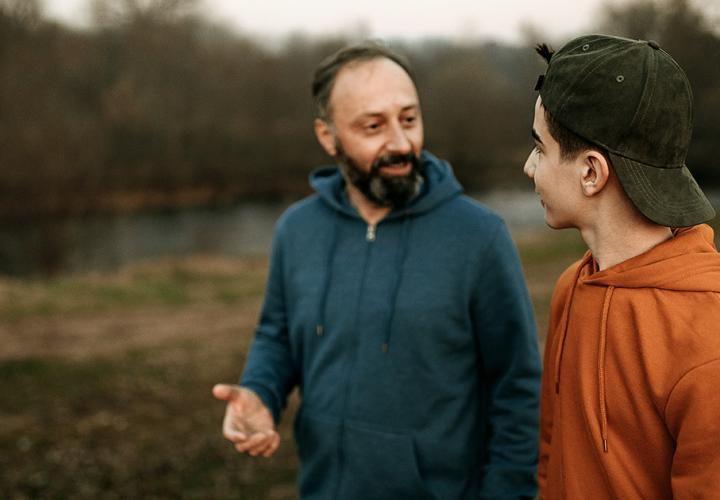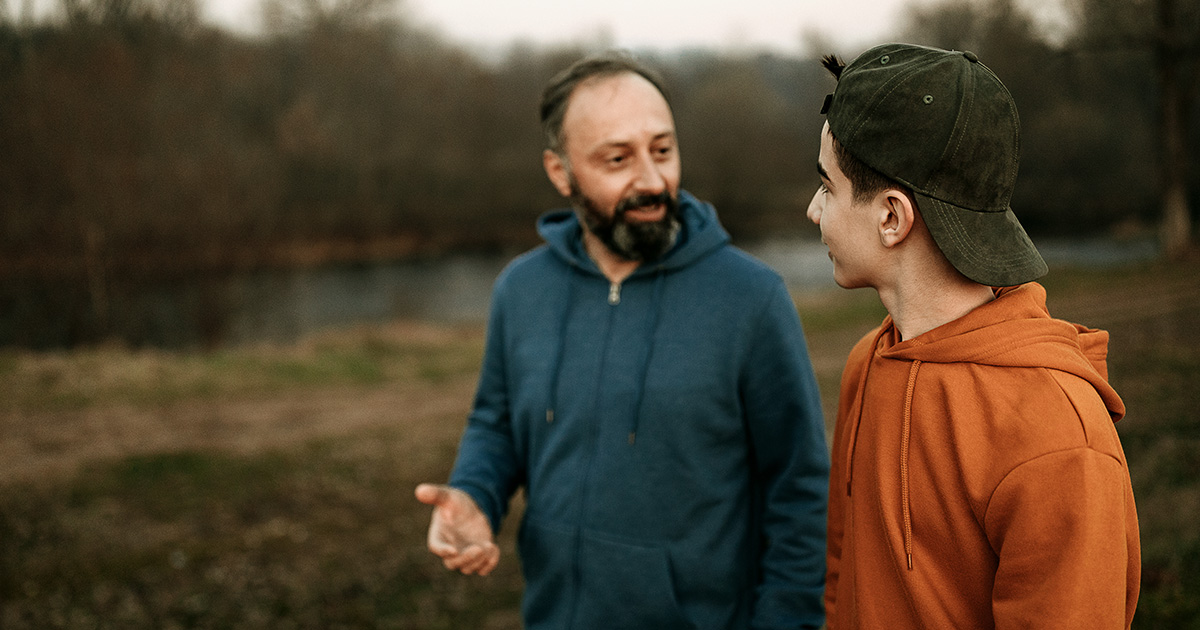When your child is 8 or 9 years old, start talking to them about drugs.
If your child gets in the habit of talking with you while they’re young, they’ll feel more comfortable coming to you when they’re older. That’s true for any sensitive subject.
When it comes specifically to talking about the dangers of drugs (and alcohol and tobacco), the American Academy of Pediatrics suggests starting around age 8 or 9.
- For younger kids, look for opportunities to bring it up casually. Maybe you and your young child are watching TV, and a character is smoking cigarettes or drinking alcohol. Or maybe an athlete is in the news because of steroid use. Explain what that person is doing, and what it does to their body.
- For teens, you can also ask what they know about the other consequences of substance abuse, like what might happen if they get in the car with a friend who’s been drinking or using drugs. In addition to jail time and fees, talk about the possibility that they or someone they care about might be killed or seriously hurt.
The key in having these conversations is to ask questions in a nonjudgmental way, be curious, and take time to listen. Down the road, that will help your child feel safer coming to you if they have questions or need your help.
> Related: How to Talk to Your Child About Suicide
Check in with your child about recent events.
The Hartford school overdose is a tragedy, and it’s important for your child to know that they can talk to you about it if they need to. But they might not know how to bring it up. You can start the conversation for them.
- It’s OK to be direct. Ask your child, “Have you heard what happened on the news?” or “What are they saying at school?” Ask them about what they already know, and how they’re feeling about it. Don’t push them to talk about it they don’t want to, but let them know you’re there for them.
- If you don’t know the answer to a question, that’s OK – be honest about that. Focus on really listening to your child, and validating their feelings. That will help them open up.
Let your child know that it’s normal to feel worried, sad or scared. But there are steps they can take to keep themselves safe – like the strategies below.
> Related: How to Talk to Kids About Scary or Tragic Events in the News

